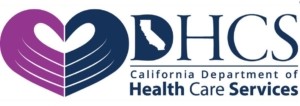Safely Detox From Alcohol at Our Certified Detoxification Center In Orange County
Alcohol is, technically, a type of poison for your body. By consuming it in small doses, the human body can develop a resistance to it. However, excessive and frequent consumption of alcohol can lead to dependence. When your body progresses to the point where it relies on alcohol to produce certain chemicals in the brain, cutting yourself off from the source will result in serious withdrawal symptoms. Fear of withdrawal or frustration with the symptoms is a major roadblock for people who are looking to recover from alcohol addiction.
At the Dana Point Rehab Campus Detoxification Center, you can cleanse your body of alcohol in a safe, monitored environment. Unlike many detox centers, we transition our detox clients into an addiction treatment program once their detoxification is complete. Based on a preliminary evaluation performed when you checked in for detox, we will develop a personalized treatment program so that you can take your first steps down the road to recovery.
Symptoms of Alcohol Withdrawal
Depending on medical factors and your body’s dependence on alcohol, alcohol withdrawal symptoms can range from inconvenient to life-threatening. This is why it is of the utmost importance that you undergo detoxification in an accredited facility monitored by medical professionals.
There are two phases of alcohol withdrawal. The first begins within hours of cutting yourself off and may last for several days. Symptoms may include:
- Vomiting
- Tremors
- Sweating
- Feelings of anxiety
- Hypertension
- Heart failure
- Hallucinations
The second phase of withdrawal involves more long-term symptoms, such as:
- Depression
- Mood-swings
- Difficulty sleeping
- Restlessness and irritability
- Diminished appetite
Although it is rare, the most serious alcohol withdrawal symptom is delirium tremens. This is a symptom that causes sudden changes in a person’s mental state and nervous system. Delirium tremens affects less than five percent of people who quit drinking, and usually only to people who do not undergo detoxification in a medical facility.
Treating Withdrawal Symptoms
There are several medications that can help you manage alcohol withdrawal symptoms. These medications are safe to take in small doses when monitored by a medical professional. They include benzodiazepines, naltrexone, and acamprosate, to name just a few.





